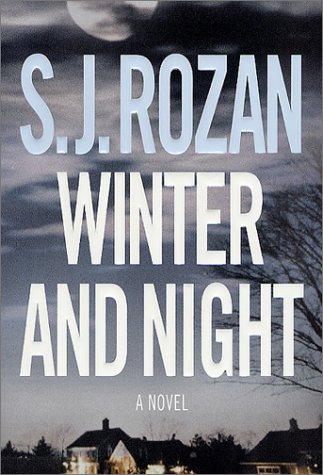-------------------
最近电子读书器纷纷降价,Kindle 降到139,Nook 降到149,Sony 有一款小的149,一款大一点的169。我要好好考虑下。眼下的顾虑主要是怕自己会 give in to my impulses,一时想看这本书,一时想看那本书,买了一堆东西看不过来。

Books, movies, food, and random thoughts in English and Chinese. Sometimes I confuse myself.


It is not a very fragrant world, but it is the world you live in, and certain writers with tough minds and a cool spirit of detachment can make very interesting and even amusing patterns out of it. It is not funny that a man should be killed, but it is sometimes funny that he should be killed for so little, and that his death should be the coin of what we call civilization. All this still is not quite enough.
David Farrell: While I enjoyed Inception greatly, I had one nagging question after I finished watching it, which is "What do the shared dreamers do if they want to, um, relieve themselves?" I mean, I guess it could be explained by the (spoiler) sedative, but if I'm on a 10 hour flight, I'm going to need to use the bathroom during that time. But, yeah, overall, I thought it was a brilliant, thought provoking film that dared to engage the minds of its audience, unlike the majority of films that Hollywood has been cranking out this year.
Ebert: Characters in movies never enjoy an ordinary pee. Toilets are for the purposes of stashing guns, killing people, overhearing conversations, Meet Cutes, escaping from the party, taking drugs, or fleeing through the window.
There's a human tendency to resent anyone who disagrees with our pleasures. The less mature interpret that as a personal attack on themselves. They're looking for support and vindication.



Since 1982 the English Department at San Jose State University has sponsored the Bulwer-Lytton Fiction Contest, a whimsical literary competition that challenges entrants to compose the opening sentence to the worst of all possible novels. The contest (hereafter referred to as the BLFC) was the brainchild (or Rosemary's baby) of Professor Scott Rice, whose graduate school excavations unearthed the source of the line "It was a dark and stormy night."参赛者提供一句小说开场白(必须是未经发表的 original writing),越 cringe-inducing 越好。今年的获奖者是:
For the first month of Ricardo and Felicity's affair, they greeted one another at every stolen rendezvous with a kiss--a lengthy, ravenous kiss, Ricardo lapping and sucking at Felicity's mouth as if she were a giant cage-mounted water bottle and he were the world's thirstiest gerbil.

We could learn to open the damn windows when it's a mild day outside. All of this would only be the beginning. Big changes are coming, sooner than we want. They have nothing to do with Republicans or Democrats. They have to do with learning to live without greed--in our personal lives, in our corporations, in our government.
When I proposed marriage to Chaz, it was because of the best possible reason: I wanted to be married to this woman. Howard Stern asked me on the radio one day if I thought of Chaz as being black every time I looked at her. I didn't resent the question. Howard Stern's gift is the nerve to ask personal questions. I told him, honestly, that when I looked at her I saw Chaz. Chaz. A fact. A person of enormous importance to me. Chaz. A history. Memories. Love. Passion. Laughter. Her Chaz-ness filled my field of vision. Yes, I see that she is black, and she sees that I am white, but how sad it would be if that were in the foreground. Now, with so many of my own family dead, her family gives me a family, an emotional home I need. Before our first trip out of town, she took me home to meet her mother.
I believe at some point in the development of healthy people there must come a time when we instinctively try to understand how others feel. We may not succeed. There are many people in this world today who remain enigmas to me, and some who are offensive. But that is not because of their race. It is usually because of their beliefs.
A quick online search after watching Jean-Pierre Melville's Le Samourai confirmed my suspicion: The plot is very rarely understood b...
